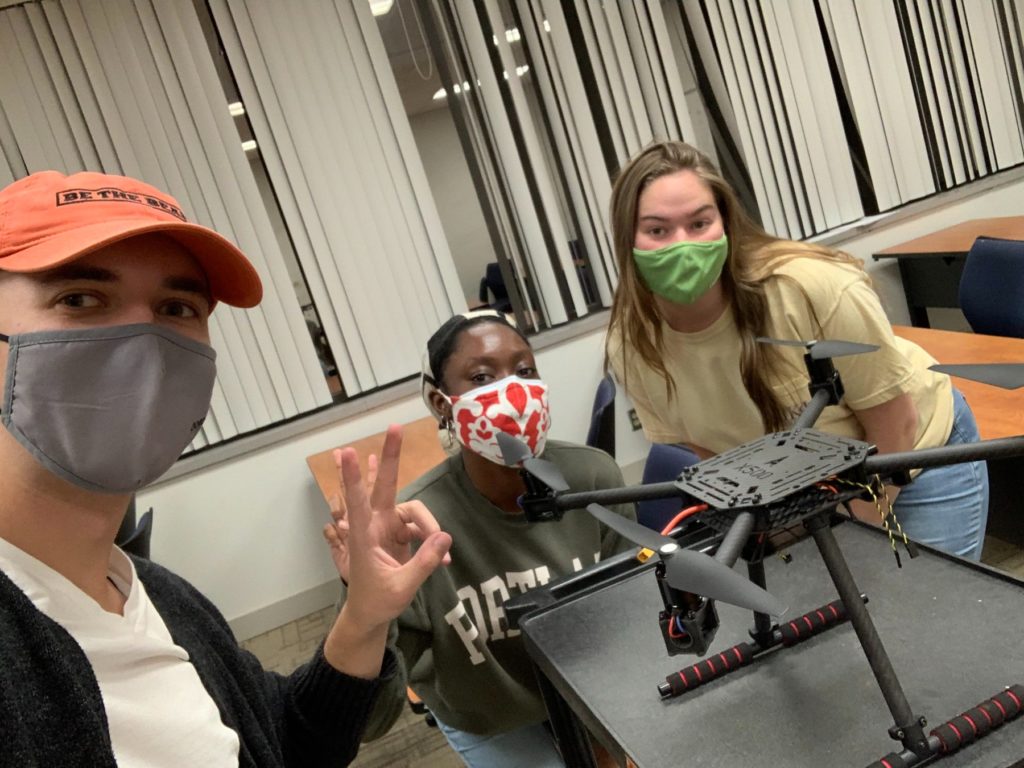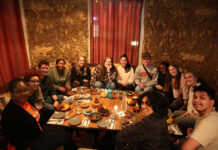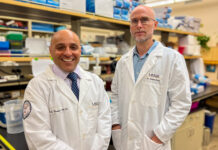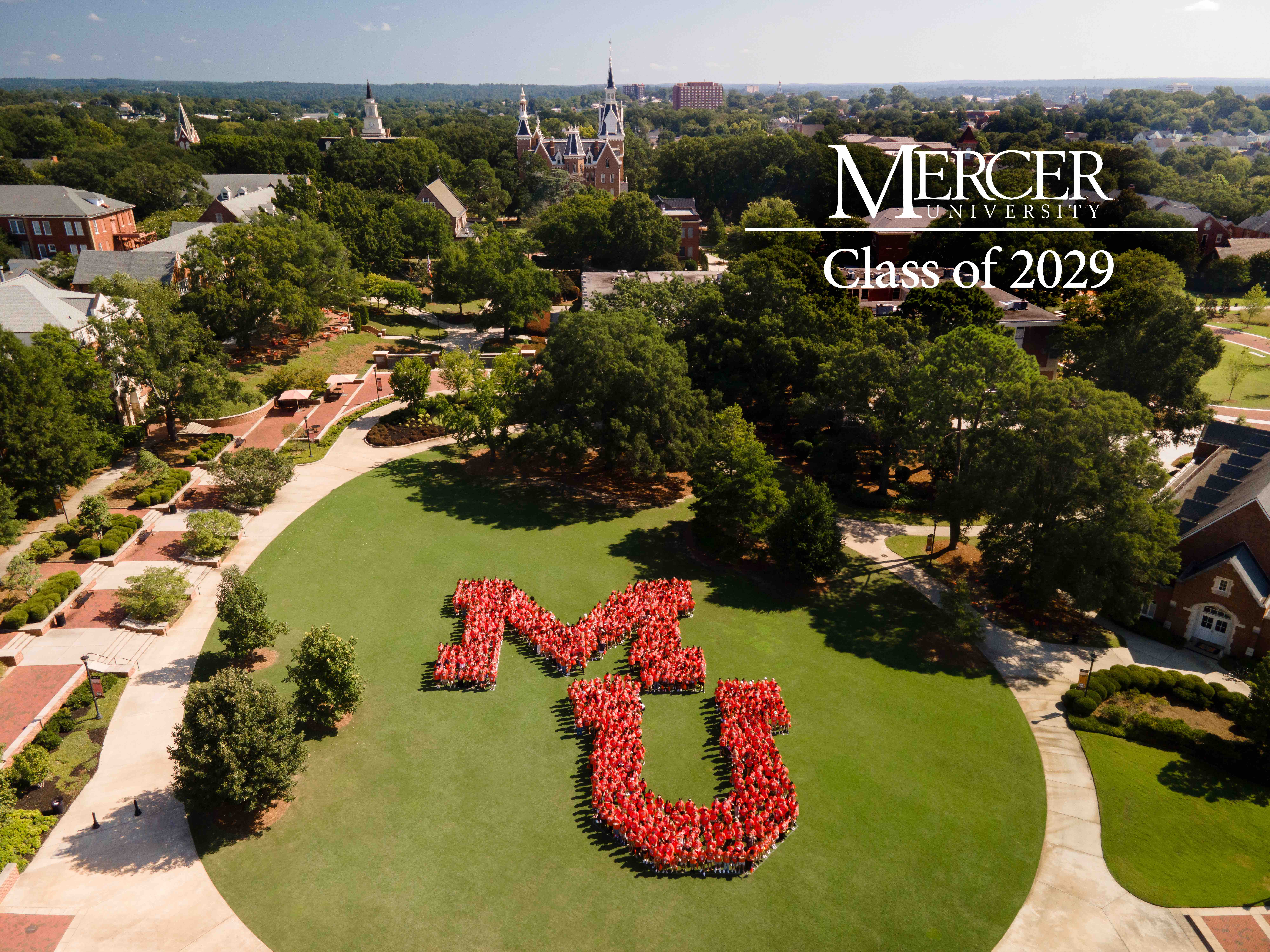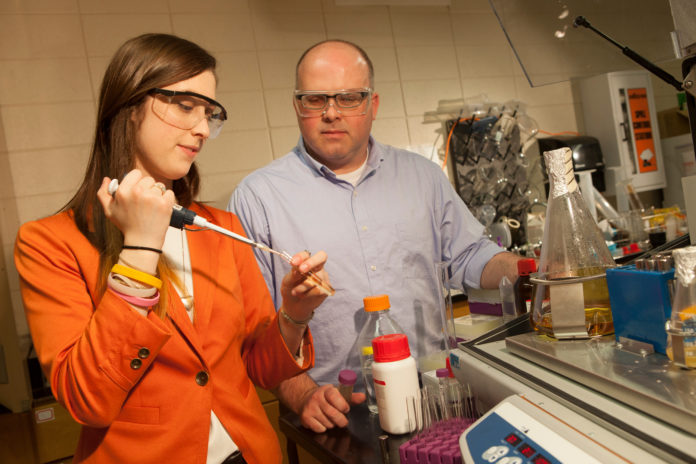
It’s no secret that research is embedded in undergraduate education at Mercer. Students are encouraged to get involved in research early, and an infrastructure of hands-on learning experiences, one-on-one mentorship and support gives them a competitive edge when it comes to graduate research fellowships in the sciences.
Mercer graduates have gone on to receive prestigious fellowships as well as funding for their research project proposals from high-profile agencies such as the National Science Foundation (NSF), National Institutes of Health (NIH) and the Department of Defense. Alumni who received these awards said the foundational knowledge they built at Mercer and the continuous guidance from faculty and staff were major contributors to their success and set them up for meaningful research careers.
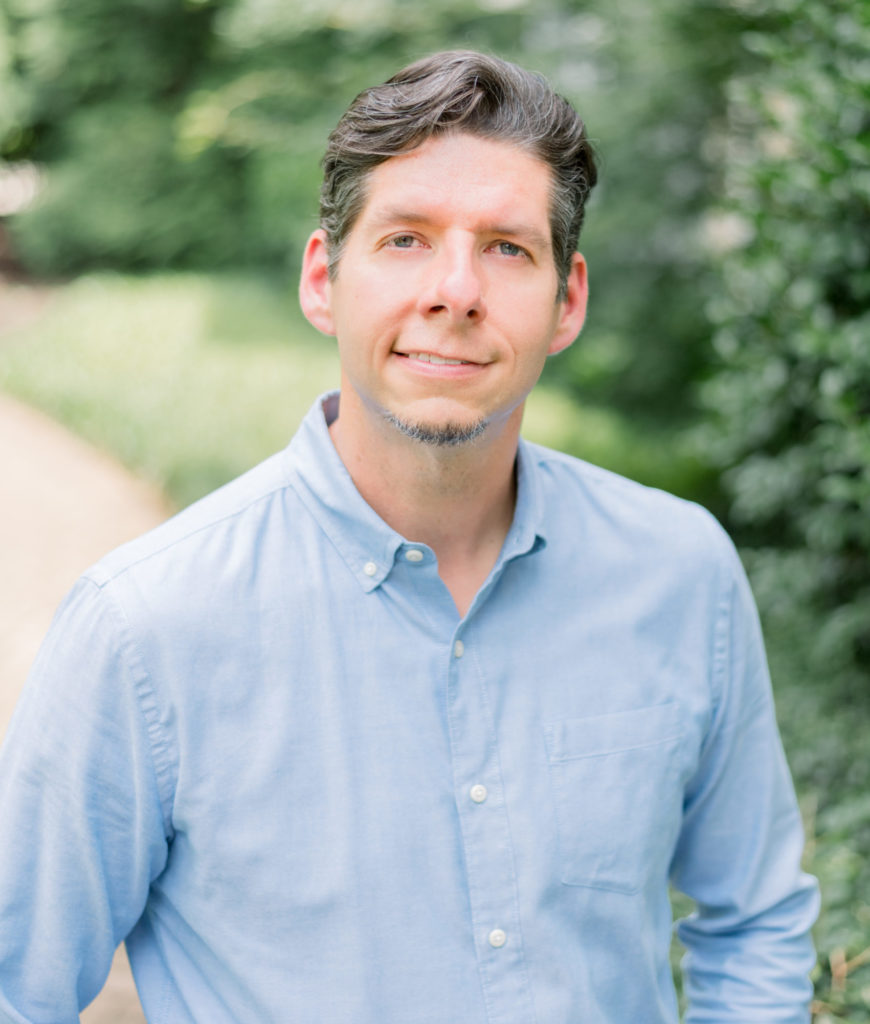
“These students have demonstrated to the federal government that they are among the strongest students in the country and their area of personal research academic interest is of such great significance that the federal government is going to invest in them directly,” said Dr. David Davis, director of fellowships and scholarships at Mercer. “It is a statement that this student has a vision for an impactful research career that’s going to affect the lives of countless people.”
Past work and future promise
Among the Mercerians who have received these prestigious science graduate fellowships are Dr. Kasie Knapper, who earned her bachelor’s degree in 2013 with majors in chemistry and psychology. Through an NSF Graduate Research Fellowship, she pursued a project related to single molecule spectroscopy, which is the study of the absorption and emission of light. Dr. Kirsten (Brown) Cottrill, a 2016 chemistry graduate and Goldwater Scholar, researched a specific enzyme in cystic fibrosis patients through an NIH F31 Individual Predoctoral Fellowship.
Class of 2018 environmental engineering graduate Kyla Semmendinger is completing the final research year of her NSF Graduate Research Fellowship, through which she has been studying technological advances that can help inform coastal decision-making and improve water level management on Lake Ontario. Meanwhile, 2022 electrical engineering graduate Ebonye Smith will begin research focusing on the integration of robotics on human behavior this fall through an NSF Graduate Research Fellowship.
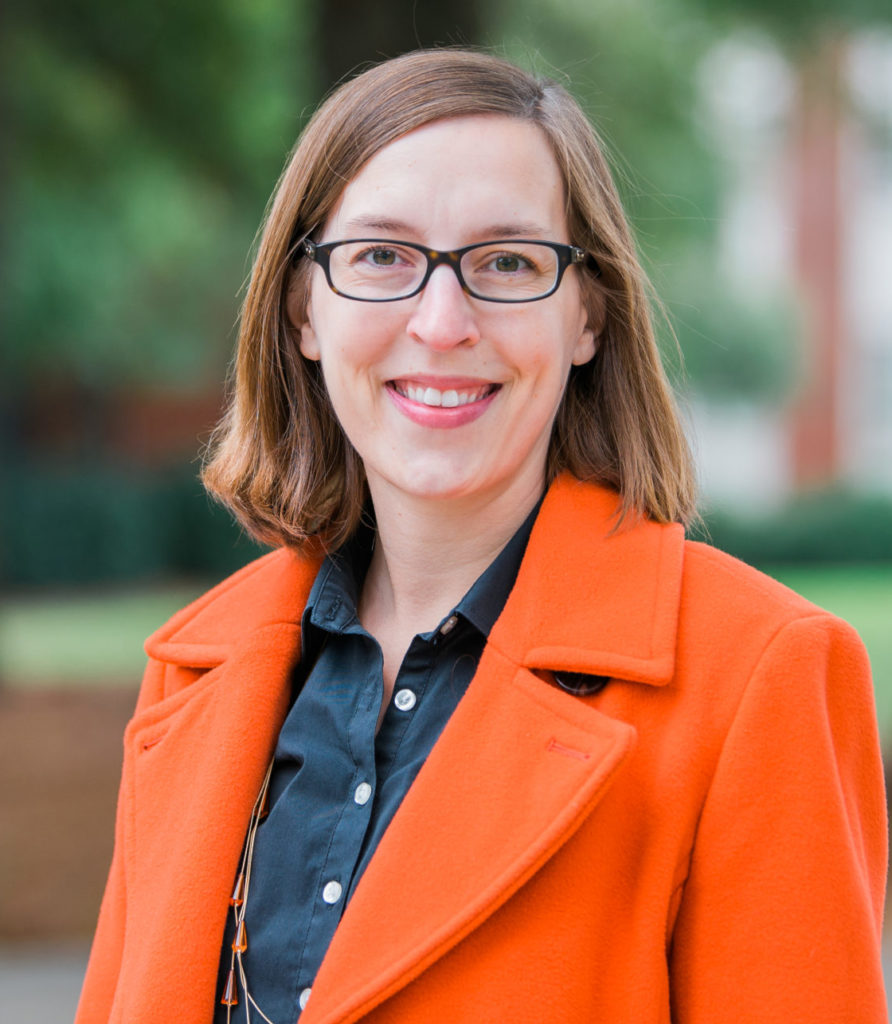
“Getting an award like this is recognition of your past accomplishments and also your future promise,” said Dr. Kathy Kloepper, professor of chemistry and vice provost of engaged learning. “It’s a huge honor. Recipients are from diverse fields, all conducting research at a very high level.”
And while the research focus for these alumni may be much different now, it was their undergraduate experiences that fostered their interests and, in some cases, changed the trajectory of their futures.
“It sets the stage for students to be competitive for the rest of their career for the most prestigious awards,” said Dr. Kevin Bucholtz, professor of chemistry and director of undergraduate research. “What we’re doing, even that freshman and sophomore year, is setting that foundation, with the key to get those early awards (such as Goldwater, Marshall and Truman Scholarships) that lead to those later awards as they advance.”
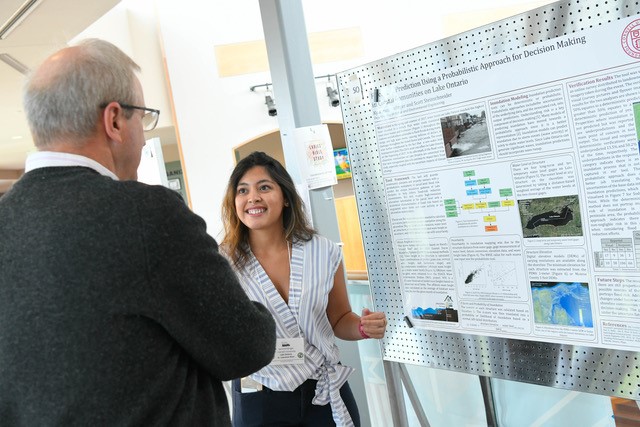
A holistic foundation
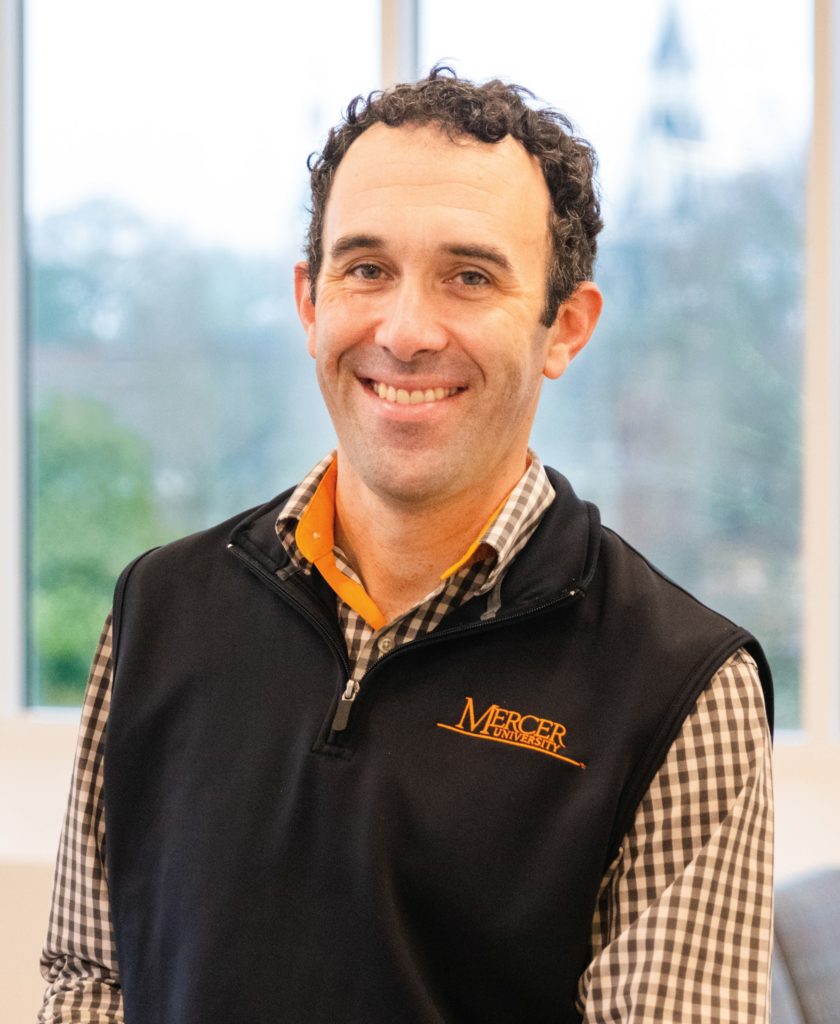
At this university where “everyone majors in changing the world,” students get practice solving actual problems early on in their education. They get the benefits of being at an institution with high research activity that has outstanding research facilities and resources, while also having that small-school feel and smaller class sizes that allow for more individualized teaching and learning, Dr. Kloepper said.
“Students are doing service learning, Mercer On Mission, and at the same time are getting the one-on-one mentorship from faculty in research,” Dr. Bucholtz said. “The reason that we’ve been so competitive (in graduate fellowships) is that’s what we do at Mercer. That’s woven into our fabric and our culture.”
Research projects are embedded into courses, study abroad experiences like Mercer On Mission, as well as intensive University summer programs like the Mercer Undergraduate Research Scholar Training Initiative and Mercer University Biomedical Scholars program. Students see what research is like and are introduced to laboratory techniques and methods, said Dr. Garland Crawford, associate professor and chair of chemistry. They bring to life the experiments they read about in their textbooks and then learn how to explain them, making them better writers in the process.
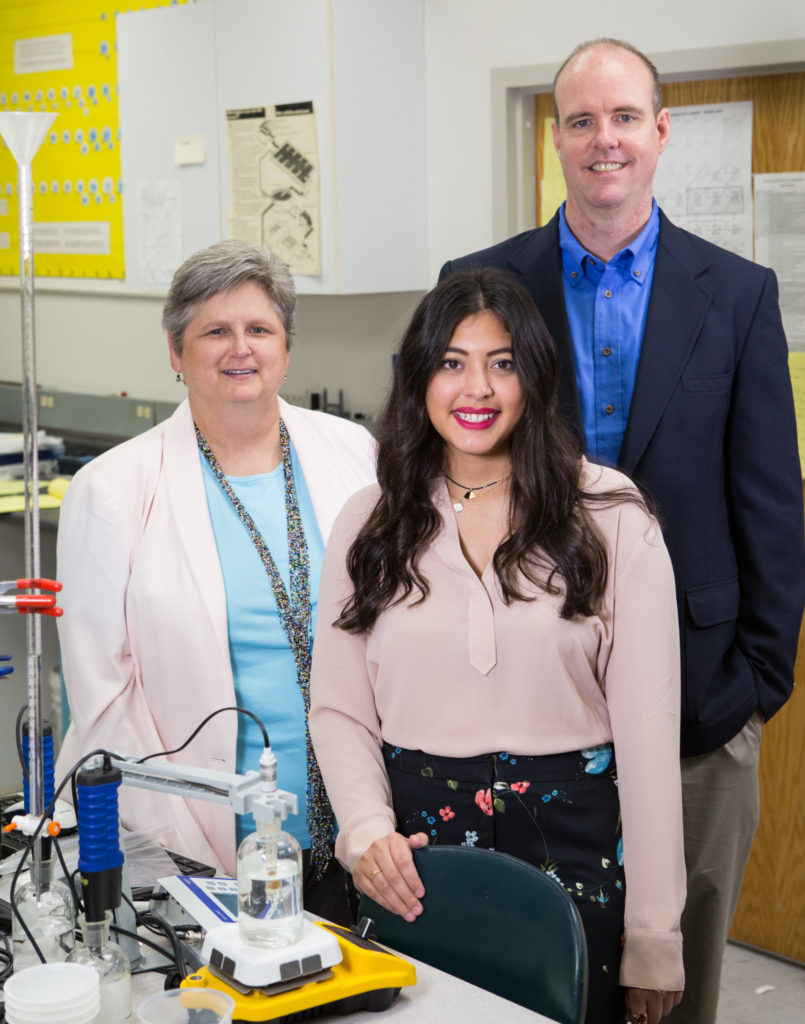
Semmendinger, now a Ph.D. student in the Department of Biological and Environmental Engineering at Cornell University, said she equated research to “boring lab coat” work until she did a Mercer On Mission trip to Kenya with engineering faculty Dr. Laura Lackey and the late Dr. Michael MacCarthy. While helping communities gain access to safe drinking water, she discovered research could be so much more and was spurred to get involved in other opportunities at Mercer.
Mercer professors are an “open-door faculty” who make time for conversations with their students about their own research, their backgrounds and experiences, Dr. Kloepper said. Then when students get involved in projects with their professors, they learn how to focus their research and have reasonable expectations, Dr. Crawford said. They also see what topics and fields they most enjoy, and those areas of interest continue to evolve with their research experiences.
“Their introductory classes should allow them to directly address real-world issues, and from there, they have the opportunity to move onto one-on-one mentorship relationships with their faculty,” Dr. Davis said. “That’s probably the single most transformative element of the entire process … those mentoring relationships where Mercer faculty members take their own work and involve Mercer students and help students find their own research facilities, resources and opportunities to produce their own research as undergraduates.”
Students also gain experience presenting their research and breaking down complex topics at the University’s annual BEAR Day, and many go on to exhibit their projects at regional and national conferences. Presenting to experts in the field and others is good practice for future research endeavors, Dr. Crawford said.
Smith talked about her research and undergraduate experiences during Mercer’s Heritage Scholars Weekend and other events for high school students. She said being invited to speak at these programs and hearing the attendees’ responses to her accomplishments were encouraging.
Developing skills to succeed
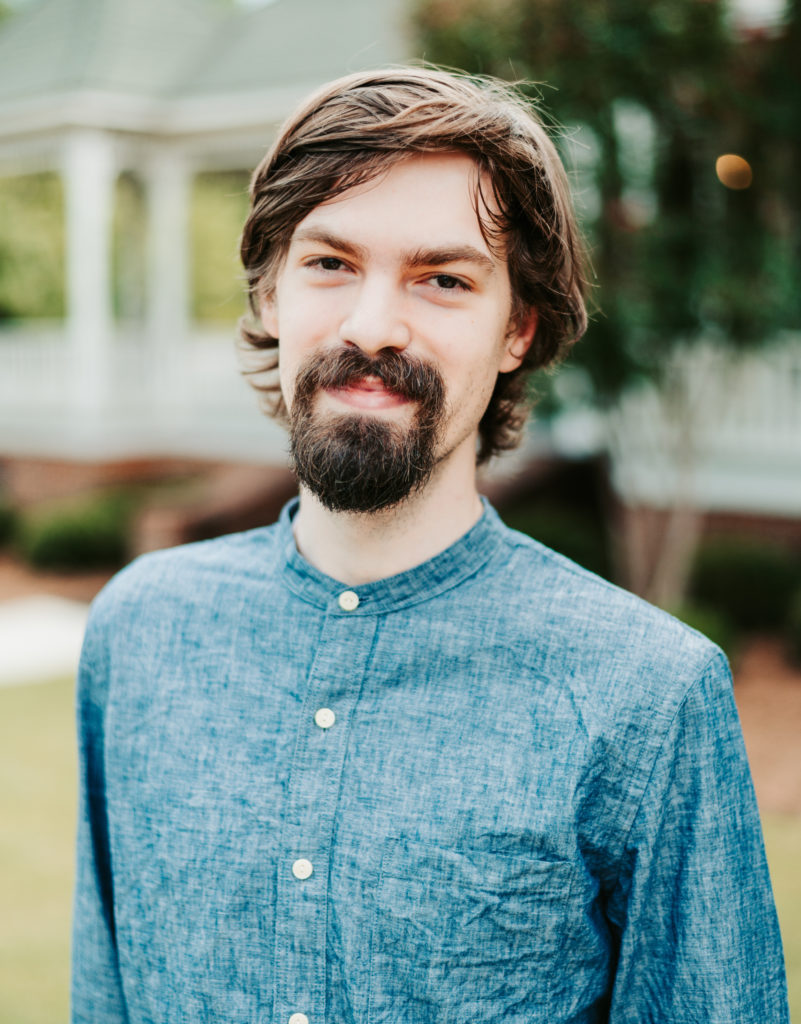
“Ultimately, many of these students are getting (fellowship) opportunities because they are spending two years or more in labs with committed faculty,” said Dr. Cameron Kunzelman, coordinator of fellowships and scholarships. “None of this would be possible without really strong faculty connections and faculty dedication.”
As an undergraduate, Semmendinger did renewable energy research with Dr. MacCarthy and potable water work with Dr. Lackey on campus and during a Mercer On Mission trip to Ecuador. She said she loved being able to use math and science to figure out how to improve people’s lives.
“I got to learn a little about a lot of different things, which I think was very helpful. It helped me going into graduate school to figure out what I was going to do,” Semmendinger said.
Mercer also showed her how to ask impactful research questions that could have real-world applications and implications to help people make better decisions.
“It was this higher-level research brain training,” she said. “That was the driving force for why I realized I wanted to do research to begin with, and that has stayed true throughout my entire career thus far.”
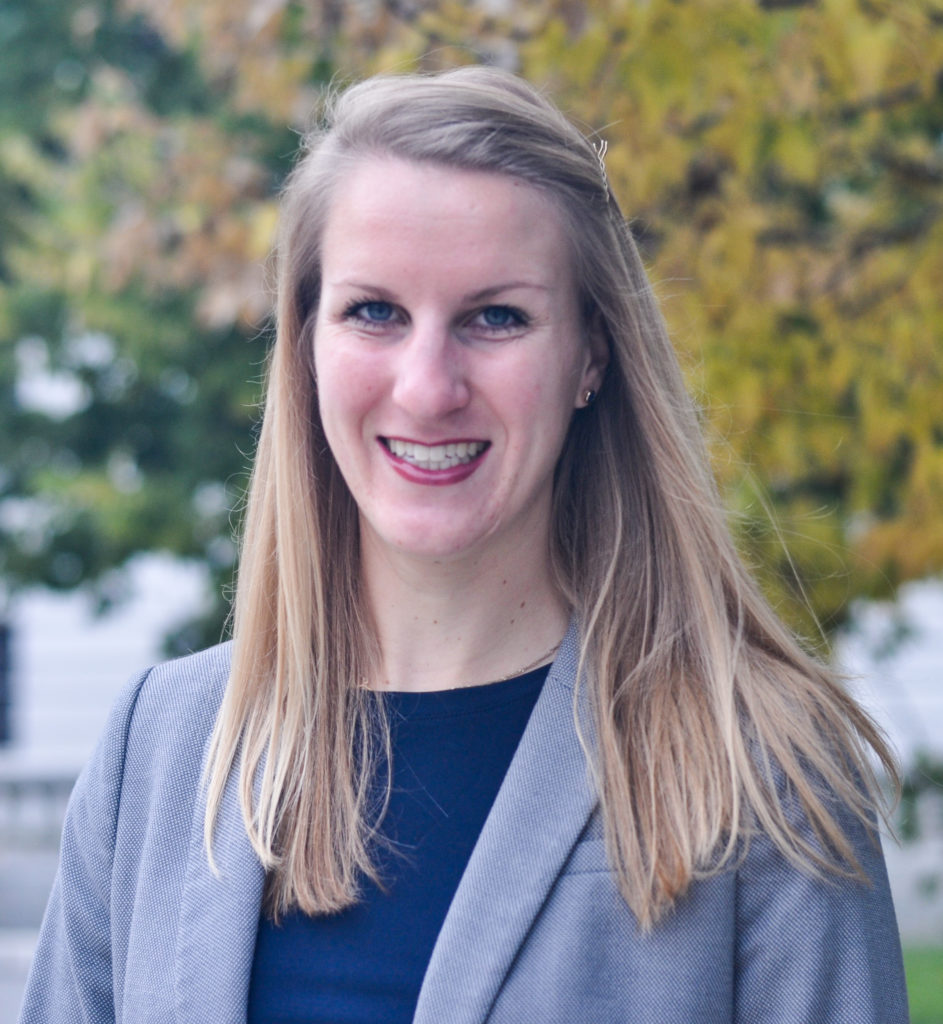
Dr. Knapper, who went on to earn a Ph.D. in analytical chemistry at the University of Wisconsin-Madison and now manages the microscopy lab at Solvay Materials, got involved in research as a freshman. She studied metal release of industrial kaolin samples with Dr. Kloepper and worked with Distinguished University Professor of Chemistry Dr. Adam Kiefer on his ongoing project to reduce mercury pollution and poisoning among gold miners during a Mercer On Mission trip to Mozambique.
“All of that helped me to develop skills that helped me as an independent researcher,” she said. “Dr. Kloepper and Dr. Kiefer really invested in me and did a good job teaching me the skills I need to succeed.”
Dr. Cottrill, who earned a Ph.D. in molecular and systems pharmacology at Emory University and is now conducting research related to childhood asthma as a postdoctoral researcher in the university’s Department of Pediatrics pulmonology unit, said it was her goal to gain a variety of research experiences as an undergraduate student at Mercer, and she achieved that. She did biochemistry research with Dr. Crawford for four years and other projects each summer. She participated in the Mercer University Biomedical Scholars program, Mercer On Mission to Ecuador with Dr. Kiefer and the Oak Ridge Institute for Science and Education.
“Mercer did a lot for me,” Dr. Cottrill said. “There’s a very good pipeline Mercer has set up to be able to progressively move students up in research experiences. I think Mercer was the best undergraduate experience I could have had.”
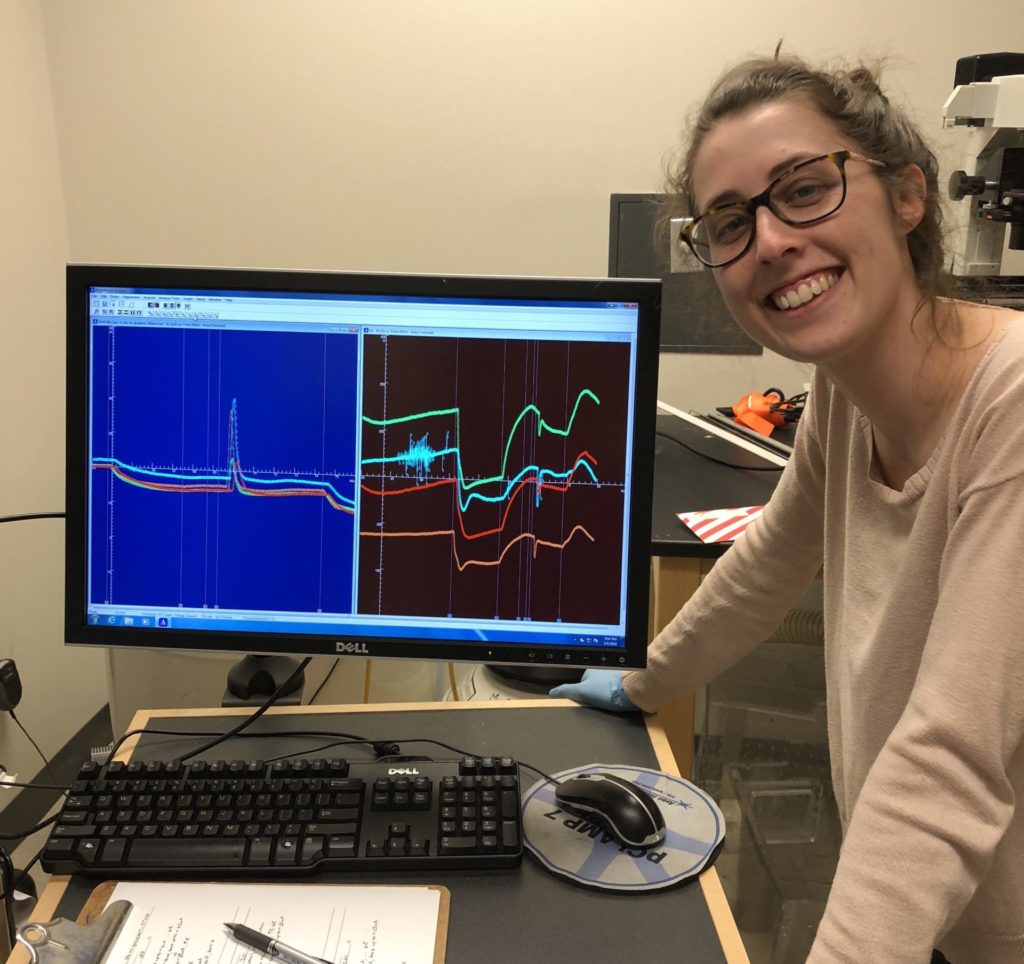
A genuine care for students
Research wasn’t on the mind of Smith, also a Goldwater Scholar, when she started her education at Mercer, but encouragement from electrical and computer engineering associate professor Dr. Makhin Thitsa led her to get involved and changed the course of her career. With Dr. Thitsa, Smith was able to contribute to a statistical analysis project on the spread of HIV/AIDS in Middle Georgia and a traffic control project related to new traffic intersections called diverging diamond interchanges.
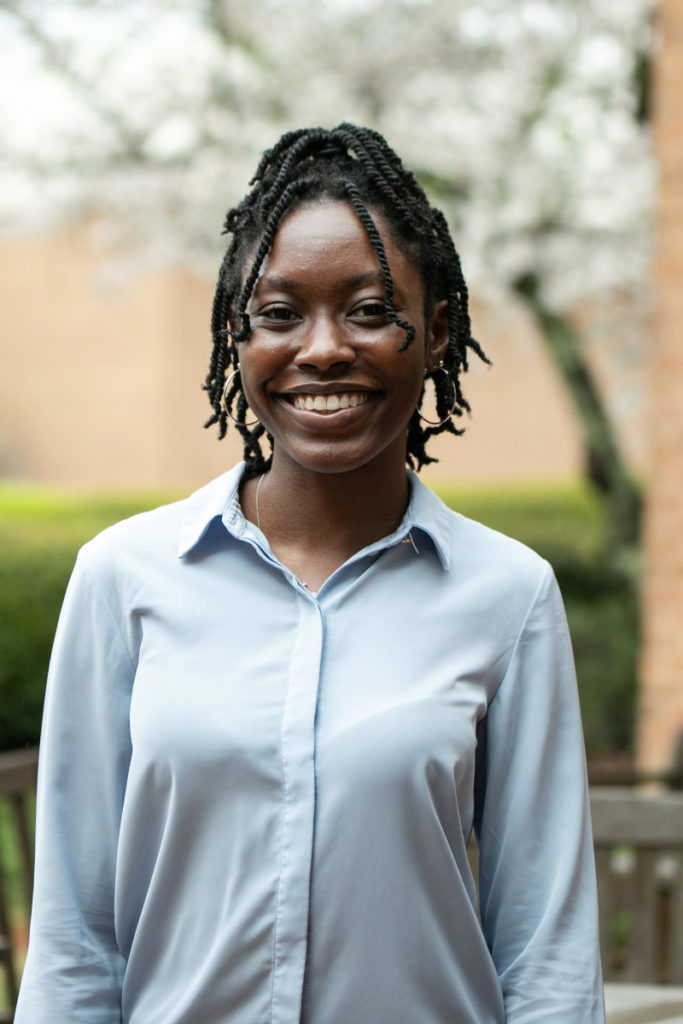
That work set the stage for her to do a summer research program in the Aeronautics and Astronautics Department at Massachusetts Institute of Technology (MIT) and an internship with the research and development team at Cisco. It’s rare for a student to be awarded an NSF Graduate Research Fellowship before entering graduate school, but Smith felt like she had a shot with her research background — and she was right.
“All of my professors have been monumental in terms of me getting where I am now,” said Smith, who will begin a Ph.D. program at the University of California-Berkeley in August.
Faculty members offer their guidance as students apply for fellowships and awards, provide letters of recommendations and give feedback on their applications, Dr. Kloepper said. Another vital source of support is Mercer’s Office of Fellowships and Scholarships. Dr. Davis and Dr. Kunzelman keep students informed of opportunities that might be a good fit for them and are available to provide assistance throughout the application process, Dr. Kunzelman said.
By the time students apply for research fellowships with agencies like NSF and NIH, most have already applied for other big awards as undergraduates, and those experiences make navigating the process easier.
Smith said she was in constant contact with Dr. Davis as she went through the application process for the NSF fellowship. Together, they went through her personal statements and research essays multiple times to make sure they were perfect.
As a first-generation college student, Semmendinger said navigating the waters of her education and career choices was daunting. But faculty mentors at Mercer opened her eyes to the opportunities available to her. Even after Semmendinger graduated from Mercer, Dr. Lackey and Dr. MacCarthy helped her revise her NSF Graduate Research Fellowship application to make it more competitive and provided letters of recommendation.
“All the experiences they exposed me to helped me learn what I wanted my career trajectory to be,” Semmendinger said. “I think Mercer is so special in how much faculty genuinely care about students. If it hadn’t been for both of them, my career would look nothing like it does now.”
